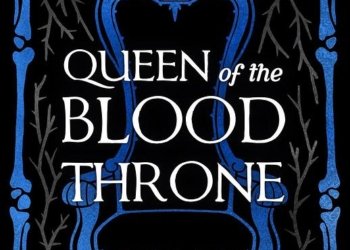No products in the cart.
Bitter Magic by Nancy Kilgore
To say that this book was a page-turner would be an understatement given how much I adored it. Once you start reading Bitter Magic, it will be difficult to put it down, and the fact that it is based on a real historical individual makes it much more fascinating. The characters are expertly developed by Nancy Kilgore, making you genuinely care about the book’s conclusion.
The novel takes place in the Scottish town of Auldearn, and Kilgore’s writing will have you believing that you are a spectator, not a participant, in the witch Isobel Gowdie’s trial. You learn several perspectives on each main character’s belief in witchcraft throughout the course of the book.
You will read the chapters from Lady Margaret Hay’s perspective and follow her coming-of-age narrative as she struggles with her religion and experiences both joy and grief along the way. Isobel Gowdie, a “cunning woman” and alleged witch, will be introduced to you, and you’ll find yourself constantly debating whether her power is real or just a delusion and a sign of lunacy.
You will also run with Harry and Katharine, two individuals with very different perspectives on how a witch accusation should be handled and dealt. My favourite aspect of this novel was how it made you wonder if Isobel’s healing abilities were real before asking again.
You’ll keep wondering if it was all just a string of lucky coincidences or if Isobel and her coven really really have magical abilities. By describing the green hills and waterside towns, the opulent castles that the wealthy live in, and the tales of the underprivileged, farmtown people and the festivals they celebrate, Kilgore not only reveals the great beauty of Scotland but also its dark, vicious side and the civil wars that are tearing the nation apart.
Henrietta, a heroine who experiences the struggles of a divided Scotland firsthand, is Margaret’s best friend. A fundamental theme of this book, in my opinion, is hope. The tragedy that befalls Henrietta inspires hope in you, the reader, for a better outcome.
Bitter Magic will leave you hoping for Margaret’s inner peace, Isobel’s insight into what she perceives to be a lost life, and Katharine’s comfort in her principles and ideals. Anyone interested in Scottish historical fiction or anyone searching for a good read should pick up this book, in my opinion.
About The Book
Bitter Magic, inspired by the true story of Isobel Gowdie and her witchcraft confession, reveals a little-known corner of history—the lives of both pagan and Protestant women in the Scottish Reformation of the 1600s as witch trials and executions threatened their lives, values, and beliefs.
The story is told by Isobel herself and also by Margaret Hay, a fictionalized seventeen-year-old noble woman. When Margaret stumbles across Isobel one day, it seems as though Isobel is commanding the dolphins in the ocean to dance. Margaret is enchanted.
She becomes interested in Isobel’s magic, in fairies, and in herbal remedies; Isobel freely shares her knowledge. While Margaret worries that being around Isobel could be dangerous, she also respects Isobel’s medical successes and comes to believe that acknowledging the efficacy of herbal remedies or believing in fairies does not challenge her Christianity.
But Isobel believes in more than cheery fairies and herbal medicine. She has dark wishes as well, unknown to most people. Isobel seeks vengeance against the local lord who executed her mother for witchcraft. More important, Isobel’s trance experiences (or are they dreams?) lead her to confess to a wide range of sins, including consorting with the devil. Then, during her trial, Isobel names thirteen others, calling them all witches. To her great shock, Margaret hears her own name. Can her tutor, a Christian mystic named Katharine, save them?
The Review
Bitter Magic
9 Score
Witchcraft, magic, fairies, potions, and the Scottish Reformation are not my usual literary fare, but Nancy Kilgore’s gripping storytelling kept my nose firmly planted in her book to the very end. That this novel is based on the true story of a confessed witch made the reading experience even more compelling. Lest the reader become confused by Scottish words and unfamiliar places, the author has thoughtfully provided helpful, accessible notes in the back of the book, and her Author’s Notes are some of the most fascinating I’ve read. This is Kilgore’s first foray into writing historical fiction. I became so immersed in the 17th century I felt as though I was reading about the present day. The historical background information was artfully and unobtrusively provided, and the details served to enhance rather than detract from my reading experience. In this time of rampant disinformation and toxic group think, Bitter Magic offers a timely reminder of what can happen when people of good will mislay their moral compass.











